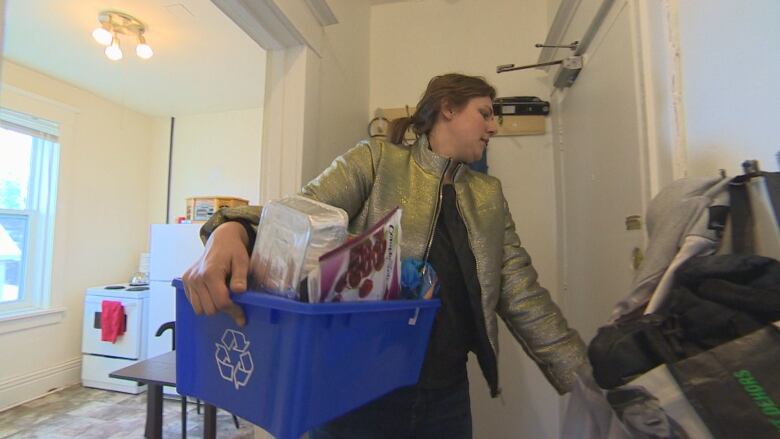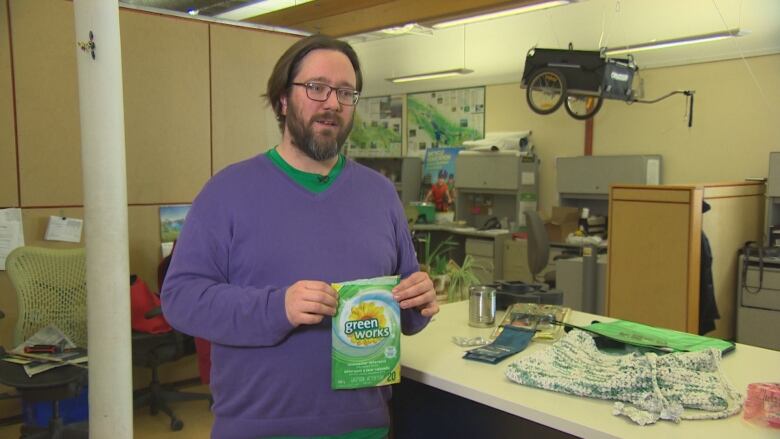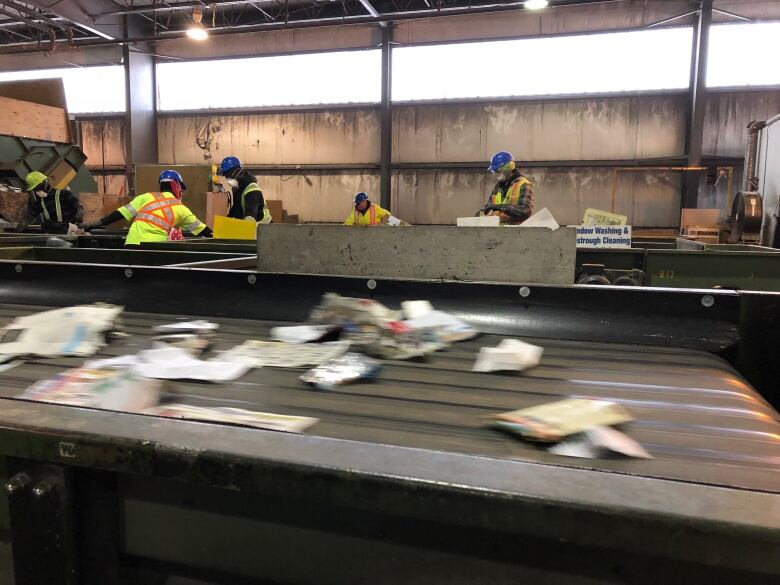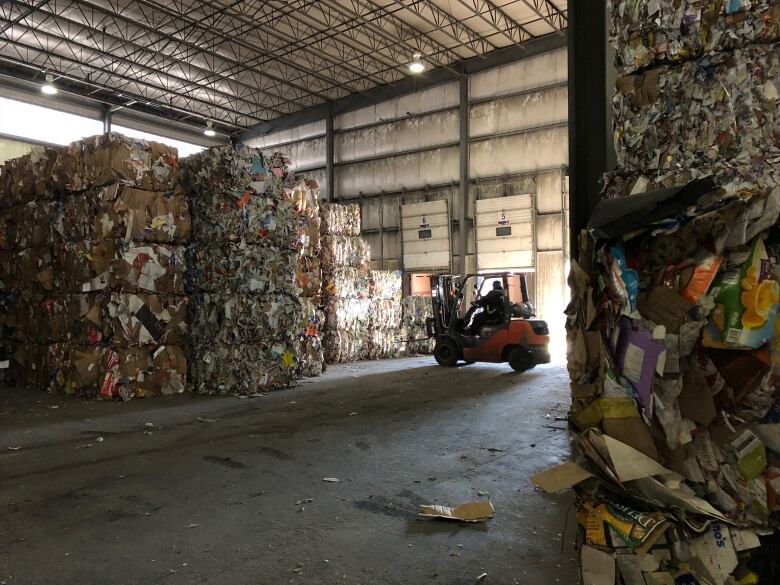Recycling challenges pile up for consumers, municipalities as buying habits change
Challenges include technology change, demographics, lifestyle trends and a demand for convenience

Like many Canadians, Sara Wray Enns does whatever she can to reduce her environmental footprint, including recycling.
Butlike many Canadians, Enns's lifestyle is changing what she puts in her blue box and that change iscreating challenges for municipal recycling programs.
"I think the hardest part of recycling is that I don't really know what actually gets recycled and feeling like it may be a little futile to actually put things in the bin and sort things out," Enns said, pointing to egg cartons, plastic resealable stand-up pouches and coffee cups in her blue box.
"Reducing my waste is super important to me, but it is getting quite complicated."
What's in Canadians' recycling boxes has changed in the last two to three decades.
The staples used to be newspapers, glass and tin. Those materials are easy to sortand there are established markets for them.
ButCanadians are getting more of their news online.
They're shopping more online, too, which means layers of packaging, including Styrofoam which is not recyclable in most municipalities.
Two-income families and more single-person households mean a growing appetite for takeout, prepared foodand individualized portions.
That convenience packaging is often made of different plastics and multiple layersthat contain different materials, making it very difficult to recycle in a conventional system.

"There are so many different types of plastics and it can be a very confusing issue for consumers who are using these products," saidJaret Olford of the Green Action Centre in Winnipeg.
"Some of them are very easily labelled, it has a #1 on it, or #2 or #5, and they can recycle those easier. But now there are new types of plastics and new types of packaging that are getting used and they're too newtechnology hasn't caught up in the way that we sort our streams."
He points to the plastic wrap from a set of headphones which is not recyclable and a plastic pouch with a zipper that held dishwasher pods.
"Unfortunately, there's two types of plastics on this and sometimes even more, depending on what the label is," he explained.
"So this one, it doesn't look like there's more than one type [of plastic], but the sealing feature is a different type of plastic. So if you were to melt this down, the finished product will have the main plastic but it will also have contamination from other plastics, so it's a lesser grade and you can do less things with that type of recycled plastic."

Olford said individuals can make small changes that will add up to make a difference, such as using reusable grocery bags, bringing reusable dishware to restaurants for yourleftoversand saying no to plastic straws.
"So before buying this, think 'Wait a second, what will I be able to do with the packaging afterwards?'" he said.
"We need to change our lifestyle habits and technology needs to catch up with us."
It also means governments need to invest in new technology that can manage contamination and adapt to new types of packaging.
New ways of funding recycling
However, that comes with a price tag, forcing municipalities to find new ways of funding recycling programs. One option is what's called extended producer responsibility when the manufacturer is physically and financially responsible for the end-of-life-management of the material.
"When we think about the management of material, producers really should be paying that cost. They're putting it onto the market and why should municipalities be financially responsible for it?" said Calvin Lakhan, a research scientist from the faculty of environmental studies at York University.
"This kind of poses an interesting financial dilemma because packaging producers do not want to pay this cost. It's a significant cost. So if you shift that financial responsibility onto packaging producers, that's the cost they absorb and ultimately they pass it on to the consumer."

Right now, B.C. is only province where producers are 100 per centresponsible for recycling costs, finding markets and all other aspects of recycling, but Ontario and Manitoba are also moving in that direction.
While it's one way to keep the blue box sustainable at a time when recycling rates have stalled and costs are increasing, for Lakhan,it all comes down to the fact municipalities need to make recycling easy.
"I think there needs to be a reciprocity between the municipality and the household, meaning the municipalities need to make it convenient for households, either through curbside collection or depot-based programs," he said.
"They need to readily communicate to households what constitutes recyclable materials and for households, it's a matter of taking that extra effort.
"I know a lot of people don't really want to and there's a lot of evidence in the academic literature that if you make recycling inconvenient, people won't participate, even though they know it's good for them and good for the environment."












_(720p).jpg)


 OFFICIAL HD MUSIC VIDEO.jpg)
.jpg)



























































































